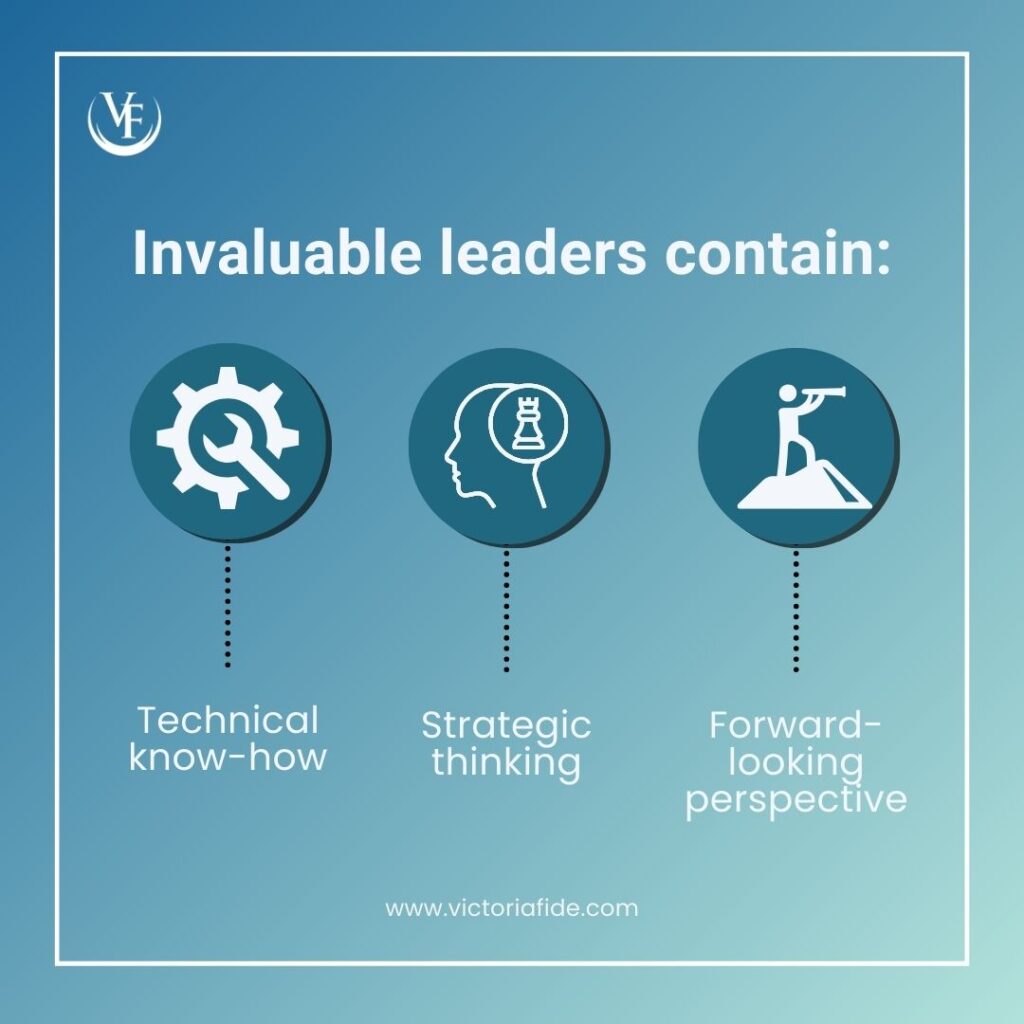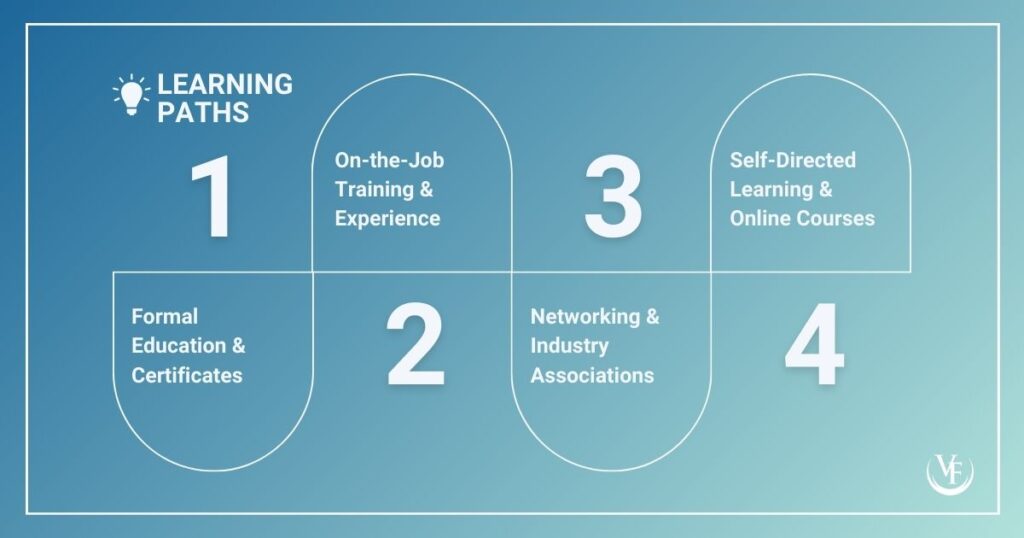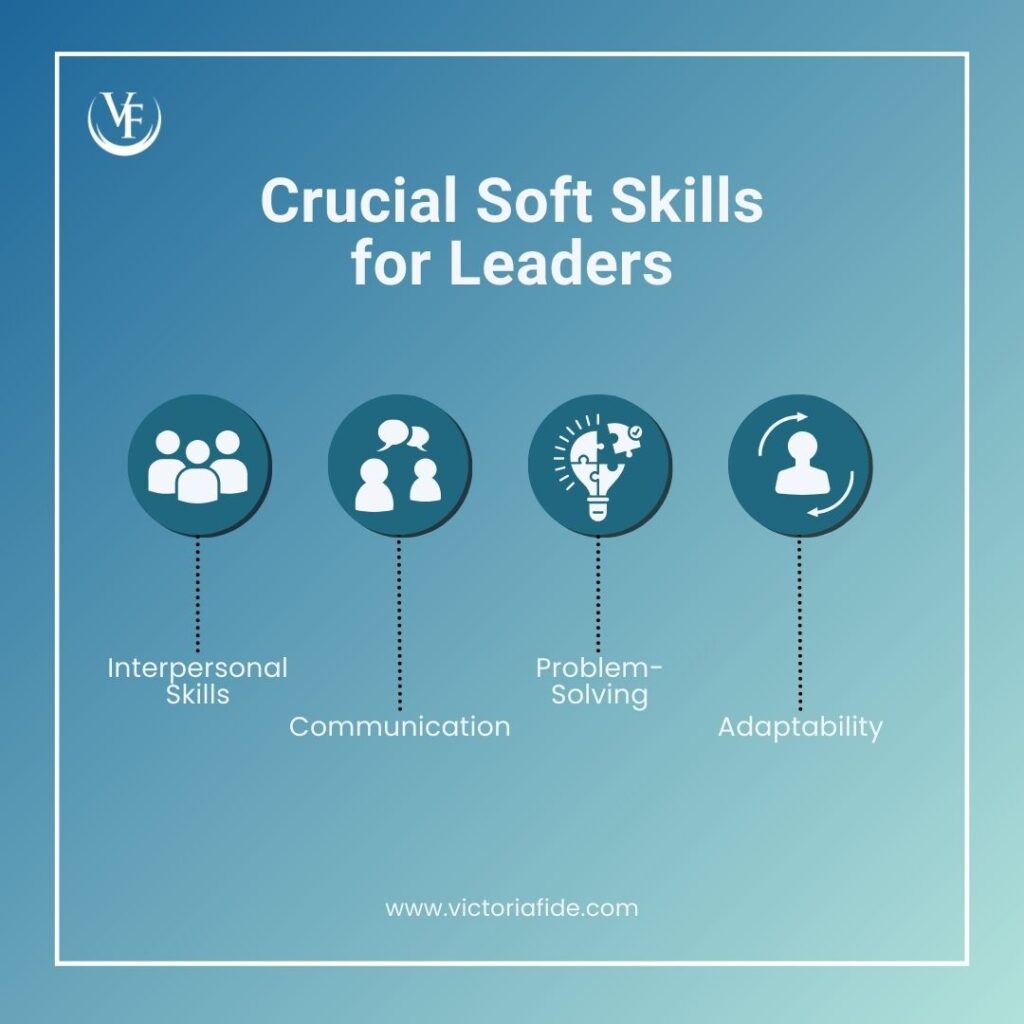
Table of Contents
Future-Proof Leadership: A CXOs Guide to Professional Growth in Logistics, Warehousing, and Digital Transformation
The Evolving Landscape of Logistics, Warehousing, and Digital Transformation
In today’s fast-paced world, the domains of logistics, warehousing, and digital transformation are undergoing significant shifts. These changes are driven by a combination of technological advancements, consumer demands, and global market dynamics. As industries become more interconnected, the boundaries between logistics, warehousing, and digital transformation are blurring, creating a holistic ecosystem that demands professionals to be versatile and adaptive.
Logistics, traditionally seen as the backbone of commerce, has expanded its horizons with the integration of advanced technologies, leading to more efficient and timely delivery systems. Warehousing, once a static component of the supply chain, now leverages automation and data analytics to optimize storage, retrieval, and inventory management. Meanwhile, digital transformation acts as the catalyst, propelling both logistics and warehousing into the future by introducing innovative solutions and streamlining operations.
The Importance of Continuous Professional Growth
For professionals in these fields, the evolving landscape presents both challenges and opportunities. To remain relevant and competitive, it’s imperative to prioritize continuous learning and skill enhancement. By doing so, individuals can ensure they are equipped to navigate the complexities of their respective domains and contribute effectively to their organizations.
Continuous professional growth is not just about acquiring new knowledge; it’s about refining existing skills, understanding emerging trends, and developing a mindset that embraces change. In an industry that thrives on efficiency and innovation, professionals who commit to ongoing development position themselves as invaluable assets, ready to lead and inspire.

Moreover, as the convergence of logistics, warehousing, and digital transformation continues, professionals who can bridge the gaps between these areas will find themselves in high demand. This interplay requires a unique blend of technical know-how, strategic thinking, and a forward-looking perspective.
In conclusion, the dynamic nature of logistics, warehousing, and digital transformation underscores the need for professionals to be proactive in their growth journey. By understanding the intricacies of the evolving landscape and committing to continuous development, they can ensure a prosperous and fulfilling career.
Understanding the Key Areas of Growth
Logistics Management
Logistics management is a multifaceted discipline that encompasses the planning, execution, and management of the movement of goods, services, and information. As global trade expands and supply chains become more intricate, the role of logistics management has grown in prominence. Key growth areas within this domain include:
- Supply Chain Optimization: Leveraging technology and data analytics to streamline operations, reduce costs, and enhance efficiency.
- Transportation Management: Exploring innovative transportation methods, optimizing routes, and ensuring timely deliveries while minimizing environmental impact.
- Vendor and Partner Collaboration: Building strong relationships with suppliers, distributors, and other stakeholders to ensure seamless operations and mutual growth.
Warehousing and Inventory Control
Warehousing plays a pivotal role in the supply chain, acting as the central hub for storage, distribution, and inventory management. As consumer demands shift and e-commerce grows, warehousing must adapt to meet these new challenges. Key growth areas in warehousing include:
- Automated Storage and Retrieval Systems (ASRS): Implementing automation to enhance storage efficiency and reduce manual labor.
- Inventory Forecasting: Utilizing predictive analytics to anticipate demand, reduce overstock, and prevent stockouts.
- Warehouse Design and Layout: Designing spaces that maximize storage capacity, improve workflow, and facilitate quick product retrieval.
Digital Transformation and Technological Advancements
Digital transformation is the integration of digital technologies into all areas of a business, resulting in fundamental changes to operations and the delivery of value to customers. In the context of logistics and warehousing, digital transformation is reshaping traditional practices. Key growth areas in this realm include:
- Internet of Things (IoT): Connecting devices and systems to gather real-time data, enhancing visibility and decision-making across the supply chain.
- Artificial Intelligence (AI) and Machine Learning: Implementing algorithms that can predict trends, optimize operations, and automate routine tasks.
- Blockchain Technology: Creating transparent and tamper-proof records for transactions, ensuring trust and security in supply chain operations.

Paths to Professional Growth

Formal Education and Certifications
The foundation of any professional journey often begins with structured learning. Formal education provides a comprehensive understanding of core concepts, while certifications validate expertise in specialized areas.
- Degree Programs: Institutions worldwide offer bachelor’s and master’s programs in logistics, supply chain management, and information technology. These programs delve into theoretical knowledge, industry best practices, and the latest technological advancements.
- Specialized Certifications: Recognized bodies and institutions offer certifications tailored to logistics, warehousing, and digital transformation. Earning these certifications not only enhances one’s skill set but also signals commitment and expertise to potential employers.
On-the-Job Training and Experience
Practical experience is invaluable. While classroom knowledge provides a foundation, real-world challenges hone skills and deepen understanding.
- Rotational Programs: Some companies offer rotational programs where employees cycle through various departments. This approach provides a holistic view of operations and helps identify areas of interest and expertise.
- Skill Development Workshops: Organizations often conduct workshops focusing on emerging technologies, software tools, or management techniques. Participating in these sessions can introduce professionals to new concepts and practices.
Networking and Industry Associations
Building relationships within the industry can open doors to opportunities and insights. Networking isn’t just about career advancement; it’s also about learning from peers and staying updated on industry trends.
- Industry Conferences: These events gather professionals from around the world, offering seminars, workshops, and discussions on the latest developments and challenges in the field.
- Professional Associations: Joining associations dedicated to logistics, warehousing, or digital transformation can provide access to resources, training programs, and a community of like-minded individuals.
Self-Directed Learning and Online Courses
In today’s digital age, learning isn’t confined to classrooms. The internet offers a plethora of resources for those eager to expand their knowledge at their own pace.
- Online Platforms: Websites like Coursera, Udemy, and edX offer courses on a wide range of topics, from supply chain management to the intricacies of AI in logistics.
- Webinars and Virtual Workshops: Experts and institutions frequently host online sessions, diving deep into specific subjects and offering participants a chance to engage and ask questions.
Skills Development for the Modern Professional
Soft Skills for Leadership and Management
While technical prowess is essential, soft skills play a pivotal role in shaping effective leaders and managers. These intangible qualities facilitate collaboration, decision-making, and the ability to inspire teams.

- Interpersonal Skills: People are at the center of everything leaders do. Developing interpersonal skills removes barriers and builds trust, enabling leaders to inspire their teams to overcome challenges with confidence.
- Communication: Articulating ideas, listening actively, and fostering open dialogue are crucial in coordinating efforts, resolving conflicts, and ensuring clarity in objectives.
- Problem-Solving: The ability to analyze situations, identify challenges, and devise solutions is invaluable, especially in dynamic fields where unexpected hurdles are commonplace.
- Adaptability: Embracing change and demonstrating flexibility in the face of evolving circumstances allows professionals to navigate shifts in the industry landscape with ease.
Technical Skills in Logistics and Warehousing Technology
The fusion of technology with traditional logistics and warehousing practices necessitates a strong technical acumen. Staying updated on the latest tools and platforms is the first step toward innovation, and continuously improving proficiency within the technology enables efficient and accurate retrieval of information.
- Data Analytics: Interpreting data patterns helps in optimizing operations, forecasting demand, and making informed decisions.
- Automation Tools: Familiarity with automated systems, from robotic warehouse solutions to logistics software, is essential for modern operations as organizations battle for competitive edge in the rapidly shifting world of automation.
- Cybersecurity: As operations become increasingly digital, understanding the basics of cybersecurity ensures the protection of sensitive data and systems. From data breaches to financial losses, cyberattacks can cause significant damage to a company’s reputation and revenue.

Free PDF Download
In the rapidly changing digital landscape, more and more companies are desperately trying to keep up with the competition. Download “The 10 Biggest Mistakes Businesses Make in Digital Transformation” for free today to learn how to use DX to radically transform your business and gain an edge over your competitors.
Digital Literacy and Embracing New Technologies
The digital revolution has transformed the way businesses operate. Professionals must be adept at leveraging digital tools and be open to exploring emerging technologies.
- Cloud Computing: Utilizing cloud platforms for data storage, collaboration, and operations streamlines processes and enhances accessibility.
- Emerging Tech Familiarity: Staying curious about technologies like AI, IoT, and blockchain prepares professionals for future integrations and innovations.
- Digital Collaboration Tools: Mastery of tools that facilitate remote work and collaboration, such as project management software and communication platforms, is vital in today’s interconnected world.
Setting Clear Career Goals
Identifying Your Strengths and Weaknesses
Self-awareness is the cornerstone of personal and professional growth. Recognizing one’s strengths and areas of improvement is the first step in charting a fulfilling career path.
- Self-Assessment Tools: Utilizing tools and assessments can provide insights into one’s aptitudes, preferences, and areas that may require further development.
- Feedback Collection: Constructive feedback from peers, mentors, and supervisors can offer valuable perspectives on one’s performance and potential.
Creating a Personalized Career Roadmap
With a clear understanding of one’s abilities and aspirations, it’s essential to outline a roadmap that aligns with individual goals and industry trends.
- Short-Term Objectives: Setting achievable targets for the immediate future can provide direction and motivation. These might include acquiring a specific certification, mastering a new tool, or taking on a challenging project.
- Long-Term Vision: Envisioning where one wants to be in 5, 10, or 15 years can guide decisions and investments in personal development. This could relate to leadership roles, specializations, or even entrepreneurial endeavors.
Seeking Mentorship and Guidance
No journey is undertaken alone. Seeking guidance from those who have traversed similar paths can illuminate challenges, opportunities, and strategies for success.
- Identifying Mentors: Building relationships with experienced professionals in logistics, warehousing, or digital transformation can provide invaluable insights and advice.
- Engaging in Peer Discussions: Collaborative discussions with contemporaries can offer fresh perspectives, share experiences, and foster a sense of community.

Transformation is not easy, but it doesn’t have to be impossible. Take control of your project’s success today and schedule a free 30-minute consultation to find out how Victoria Fide can equip you for transformational success.
Overcoming Challenges in Professional Growth
Adapting to Rapid Technological Changes
The pace of technological innovation is relentless, often introducing new tools and methodologies that can disrupt established practices.
- Continuous Learning: Dedicate time to stay updated with the latest technologies and methodologies. Online courses, workshops, and seminars can be invaluable resources. Listening to relevant podcasts, subscribing to thought leaders on social media or newsletters, and purchasing subscriptions to renowned publications are great ways to absorb valuable, relevant, and inspiring material to propel one’s professional growth.
- Embracing Change: Cultivate a mindset that views change as an opportunity rather than a threat. This perspective can foster resilience and innovation. Actively seek opportunities outside of the comfort zone to practice growing and adapting to change, whether participating in a community class, volunteering for charities, or undertaking new projects through work. Always remember that change is the catalyst for growth.
Navigating Organizational Politics and Dynamics
Every workplace has its unique culture and dynamics, which can sometimes pose challenges to individual growth and collaboration. Utilizing the soft skills addressed above will provide a solid foundation for navigating these potential challenges.
- Effective Communication: Foster open channels of communication to understand and be understood. Addressing concerns, clarifying misunderstandings, and actively listening can mitigate potential conflicts.
- Building Alliances: Cultivate relationships across departments and hierarchies. These alliances can offer support, provide insights, and facilitate collaboration. Building trust early and often does wonders for mitigating any future conflicts.
Balancing Work, Learning, and Personal Life
As professionals strive for growth, it’s essential to maintain a harmonious balance between work, continuous learning, and personal well-being.
- Time Management: Prioritize tasks and allocate dedicated time slots for learning, work, and relaxation. Tools and techniques, such as the Pomodoro Technique or time-blocking, can enhance productivity.
- Setting Boundaries: Clearly define work hours and personal time. This distinction ensures that neither sphere encroaches excessively on the other, promoting overall well-being.
- Maintain Priorities: Above all, it is critical to maintain a clear sense of what matters most in life. Take the time to evaluate which things are taking priority, and actively take steps to intentionally prioritize the things that hold the most value.
The Continuous Journey of Professional Development
The fields of logistics, warehousing, and digital transformation are dynamic, shaped by evolving technologies, market demands, and global trends. As such, professional development is not a destination but a continuous journey. Embracing a mindset of lifelong learning ensures that individuals remain agile, informed, and ready to contribute meaningfully to their organizations and the broader industry.
Opportunities for growth and advancement are abundant for those who actively seek them. By staying curious, being proactive in skill acquisition, and fostering a network of supportive peers and mentors, professionals can seize these opportunities. This proactive approach not only benefits individual careers but also elevates the industry, driving innovation and excellence.
About the Author
Shana Gibbons is the Warehousing and Supply Chain Business Process Consultant. She has over 16 years of experience working in the Supply Chain and Warehousing space, and she is deeply passionate about building relationships with her clients and teams in order to help them navigate through their Warehouse and Supply Chain ups and downs.
